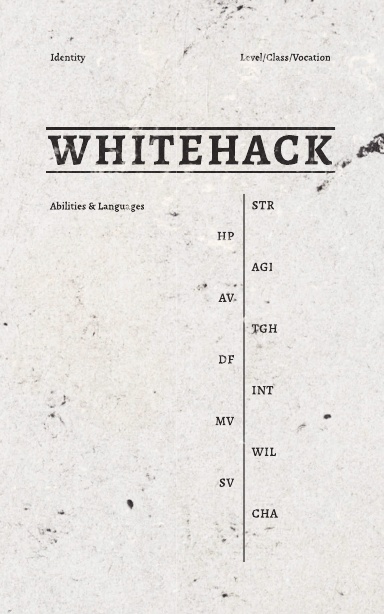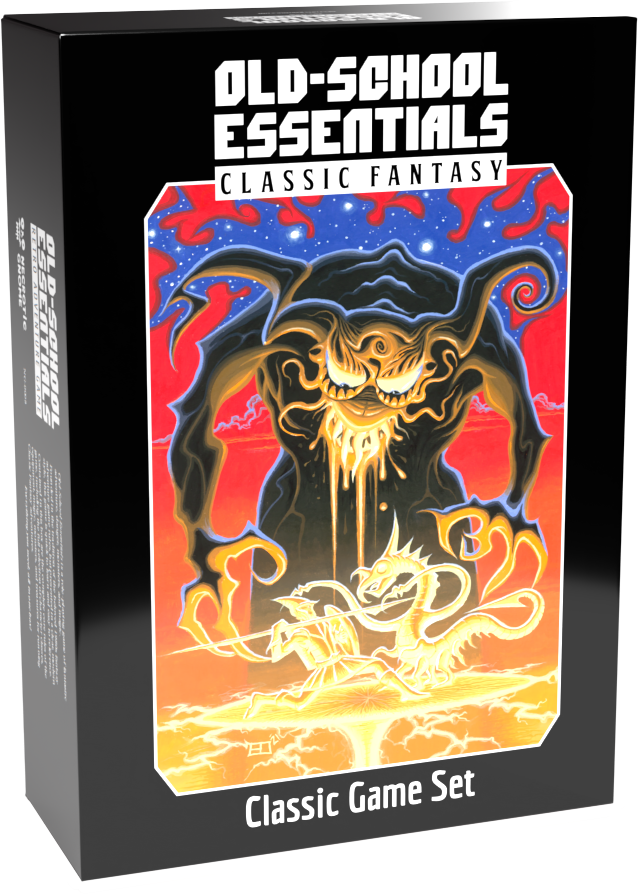Whitehack Fantasy; Dark Fantasy; Old-School Renaissance (OSR); Classless; Collaborative Worldbuilding; Rules Lite
Whitehack is a rules-lite, classless tabletop RPG that emphasizes collaborative worldbuilding and player agency. It's designed to be easily adaptable to various fantasy settings, including dark fantasy, and is part of the Old-School Renaissance (OSR) movement. The core mechanics encourage creative problem-solving and long-term campaign play. Whitehack stands out due to its freedom of concept and emergent gameplay, making it accessible to newcomers while remaining engaging for experienced players seeking a less restrictive system.
Theme and Setting
Whitehack thrives in fantasy settings, and can especially accomodate dark fantasy themes, but avoids being tied to any particular established world. Instead, it fosters collaborative worldbuilding, where players contribute to shaping the game's environment. This approach contrasts with games that have rigid settings, allowing for unique and emergent narratives shaped by the players' choices and creativity. The adaptability of Whitehack allows it to accommodate content from a wide range of sources, dating back to the earliest days of tabletop roleplaying.
Core Mechanics and Rules
Whitehack's core mechanic involves rolling under a stat on a d20. Character creation is classless, relying on a combination of adjectives (Strong, Deft, Wise) and vocations to define characters. This 'Freedom of Concept' allows players to create unique and varied characters. For example, a player could be a 'Strong Warrior' or a 'Wise Houndmaster.'
Magic, referred to as 'Miracles,' is freeform. Players define their spells, and the referee determines the consequences based on the intended effect. 'Groups' are descriptive modifiers that define a character and impact the game world, such as 'sworn sword of the king'. This system encourages player agency in shaping the meta of the game.
What Makes It Unique
Whitehack distinguishes itself through its Freedom of Concept, allowing players to define their characters and spells creatively. It balances referee power and player freedom. The game's design leans heavily on rulings over rules, encouraging referees to make judgment calls rather than relying on codified mechanics for every situation.
The ruleset is intentionally minimalist, promoting emergent gameplay and creative problem-solving. The absence of art in the core rulebook focuses attention on the text, encouraging engagement with the rules and system.
Target Audience and Player Experience
Whitehack is accessible to players new to tabletop RPGs while remaining rewarding for experienced gamers seeking a less restrictive system. It is particularly well-suited for groups that enjoy collaborative worldbuilding and a wide variety of character concepts. The game is designed for long campaigns and increasing depth of gameplay over time. However, due to its collaborative nature, Whitehack functions best with established groups of friends where there's a good rapport, as the system relies on a shared social experience and the weaving of a collective imagination at the table. Players should be comfortable with player agency affecting the world in a collaborative way, rather than adhering to an already well-defined setting or lore.



